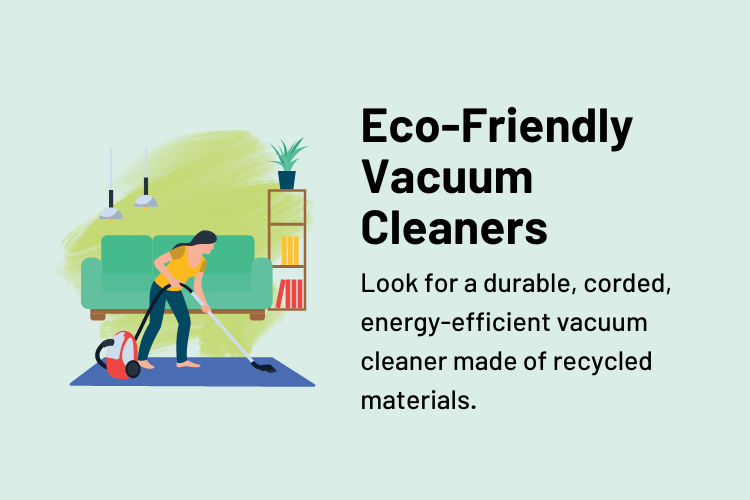
Our homes can attract an incredible amount of dirt and dust, contributing to indoor air quality problems and related health issues like asthma and fatigue. That’s why we need an easy way to get rid of that dust: a vacuum cleaner.
Ultimately, all vacuum cleaners and other electronics have a negative environmental impact, but some have larger footprints than others. Energy inefficiencies or the inclusion of toxic lithium-ion batteries can play a huge role in determining how eco-friendly a vacuum cleaner is and this guide will help you make an informed and sustainable decision.
How to choose an eco-friendly vacuum cleaner
Despite what packaging may claim, not all vacuum cleaners perform equally. An environmentally-friendly vacuum cleaner will not only clean your floors more effectively and efficiently, but it will also stand up to sustainability standards in a number of other ways.
Consider these features:
- Type of vacuum cleaner: There are many vacuum types, including uprights, canisters, sticks, robotic, and central vacuum cleaners. Choosing the right style will depend on the type of surfaces you have, how much it is used, and how often you clean. Choosing the correct type will also help you with energy efficiency.
- Energy efficiency: The average vacuum cleaner uses around 1,400 W of energy per hour, and only a quarter of that goes into sucking up dirt. The rest is wasted energy, and remember that energy production is one of the largest sources of carbon emissions.
- HEPA filter: Invest in a vacuum cleaner with a HEPA (high-efficiency particulate air) filter, which will be the most effective at reducing particulate matter in your air and helping against allergies.
- Cordless vs. corded: Look for a vacuum cleaner that is corded and doesn’t use batteries. Batteries always come with an environmental footprint and mining lithium for batteries, in particular, causes a wide range of environmental issues, such as groundwater contamination.
- Bagless vs. bagged: Bagless vacuums definitely result in less waste, but if you suffer from asthma, be sure to wear a mask when emptying the canister.
- Recycled materials: Vacuum cleaners made of recycled materials help reduce landfill and conserve natural resources. Although this should be your only consideration, it is an added environmental benefit.
- Durability: Test out the vacuum cleaner by pushing it around a little and fiddling with the parts to ascertain whether it is made durably or not. A high-quality machine will last much longer, require less maintenance, and likely work more efficiently (and therefore more sustainably).
